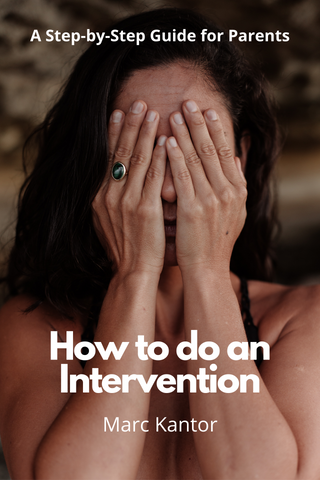Immediately following an intervention, get him out the door!
Professionals have differing philosophies about when a person should depart for treatment following an intervention; some say anytime within 72 hours is sufficient, while others say the addicted person must go immediately. I am squarely in the second camp because of the risks associated with a delay. So much can go wrong in between the intervention and entering treatment. I also believe the individual should be transported by a third-party professional, but
I will explain more about that later.
The primary concern in delaying departure is the individual can miraculously become well. In other words, it gives your addict too much time to think. They may convince themselves they’re really not an addict and can stop if they wanted to. He or she could fall into the hands of a fellow active addict who convinces them treatment is another example of the family controlling them. The examples can go on ad infinitum. Any of these scenarios will leave you having to repeat the intervention. Bottom line, strike while the iron is hot.
Delaying treatment may also mean additional consequences like getting picked up by the police for drunk driving or being arrested buying drugs. It’s unlikely your addict will stay at home nicely waiting to leave once they’ve been intervened on. If there’s trouble to be found, they will find it. Don’t put yourself in the position of having to track down your addict when it’s time to leave. If for some reason a delay is unavoidable, have the interventionist take them somewhere close to the treatment center and then wait out the delay there. If your addict is in detox or the hospital try to get the attending physician to keep them there as long as possible. It’s important to avoid unstructured circumstances or downtime. Once the train leaves the station, keep it rolling!
The last reason a delay is dangerous is your addict could overdose. It’s common for addicts and alcoholics to want to go out in style and will most definitely double down on their drug of choice. Such a move could trigger a fatal overdose especially considering the opioid epidemic and fentanyl-laced smack on the streets these days. Over 72,000 Americans die every year from drug overdoses, 60% of those are Opioid-related deaths.
The best guidance I can give anyone participating in an intervention is the second the individual agrees to treatment, get them out the door. Have their suitcase packed and ready to go, if something is missing, agree to send it UPS first thing tomorrow. Allow a few minutes for goodbyes and closure, but that’s it. Time is of the essence!
So why not transport the family member yourself or have another member of the intervention party take them? There are a few reasons beginning with the addicted individual attempting to renegotiate going to treatment and driving you crazy for the next six hours. Where a parent or spouse is subject to manipulation the interventionist is not. Professional transportation sets an immediate boundary and reinforces the seriousness of the recovery message.
If you must transport them yourself plan for challenges, for instance, what are you going to do when they insist on stopping to buy drugs one last time or refuses to go until they see the girlfriend or boyfriend who may be part of the problem, to begin with? All of these things are pitfalls that can delay or sabotage getting them to treatment.
South Florida Intervention offers exclusive solutions for families struggling with the devastating effects of addiction. Marc Kantor is a professional interventionist and the founder of South Florida Intervention, based in Boca Raton, FL. If someone you know is struggling with addiction, we can help. For additional information please e-mail us at marc@southfloridaintervention.com.

Download Free Guide: How To Do An Intervention
GetHelpForAddiction.com
